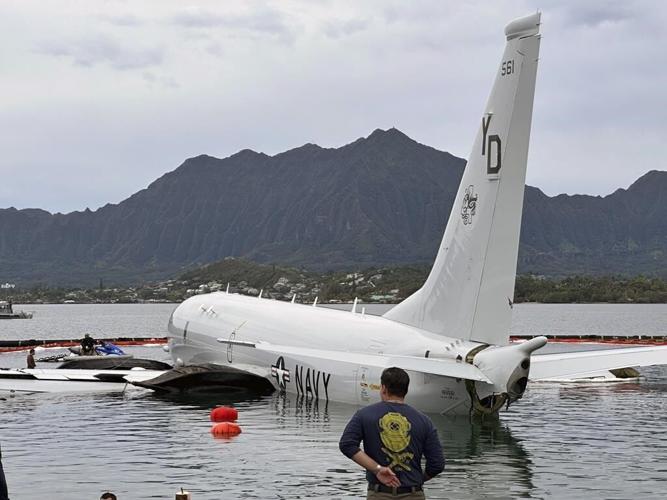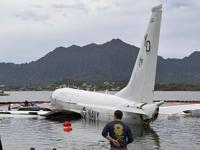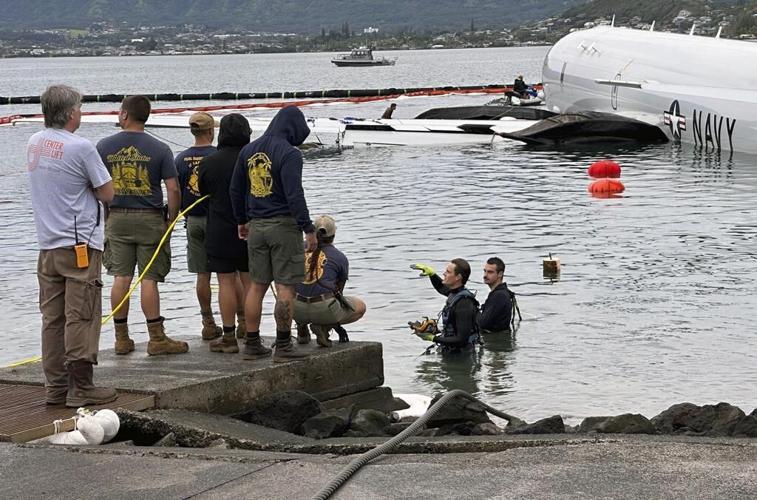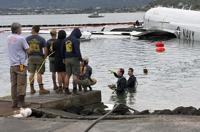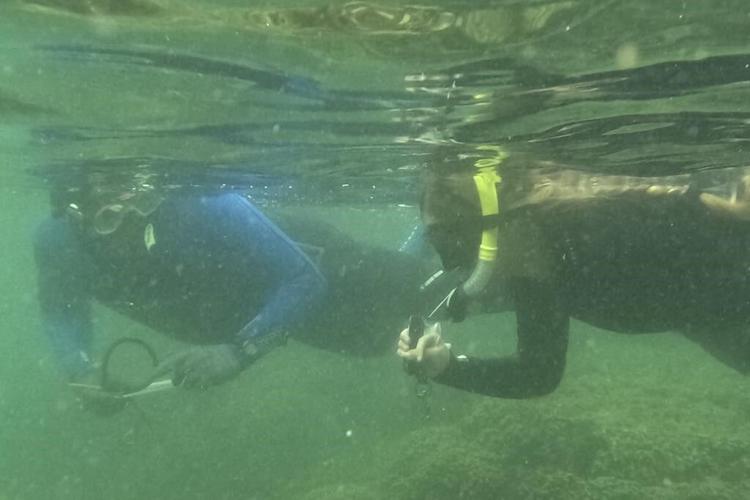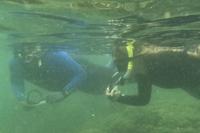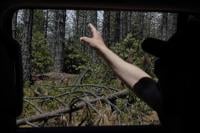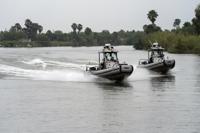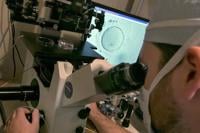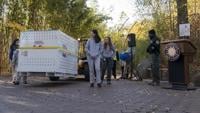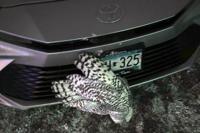KANEOHE BAY, Hawaii (AP) — Landing gear from a U.S. Navy jet pulverized coral when it came to a stop in an environmentally sensitive Hawaii bay after overshooting a runway nearly two weeks ago, a state official said Monday.
Kim Fuller, an aquatic biologist with the Hawaii Department of Land and Natural Resources, said divers are working to quantify the extent of the damage now that the plane has has been removed from the water.
Navy officials said Monday that a team worked through the weekend to use inflatable cylinders, or roller bags, to off the reef where it crashed on Nov. 20 and move it to the nearby runway at Marine Corps Base Hawaii at Kaneohe Bay.
Rear Adm. Kevin Lenox, the commander of Carrier Strike Group 3 who is leading , said absorbent material around the plane showed no indication of any fluid other than sea water, giving officials confidence that the plane hadn't released any hazardous materials such as fuel.
A Navy team earlier removed nearly all of the estimated 2,000 gallons (7,500 liters) of fuel from the aircraft.
None of the nine people on board the P-8A — the military's version of a Boeing 737 — were injured. The Navy is investigating the cause of the crash.
The Navy released underwater video last week showing the aircraft’s wheels resting on parts of crushed coral and much of the rest of the plane floating above the reef.
During a dive Sunday, state divers snorkeled along the shoreline and looked at the plane's path into the water, Fuller said. In addition to pulverized coral at the primary impact area, there was some coral damage caused by the anchors of containment booms, she said. Some coral had also been overturned or scraped, she said.
“However, I do feel that the impact area likely is much smaller than the size of the aircraft," she said, adding that it will take time to delineate and quantify the extent of the damage.
“I would say we’ve seen the majority of the worst damage," she said.
Kaneohe Bay is home to coral reefs and a lot of other marine life. The area hosts an ancient Hawaiian fishpond being restored by community groups.
The plane contributes to the community's distrust of the military, said Wayne Tanaka, executive director of Sierra Club of Hawaii, noting a massive fuel storage facility that sickened 6,000 people when it into a Pearl Harbor drinking water well in 2021.
“The Navy just can’t help itself when it comes … to these environmental harms," he said soon after the plane ended up in the bay.

